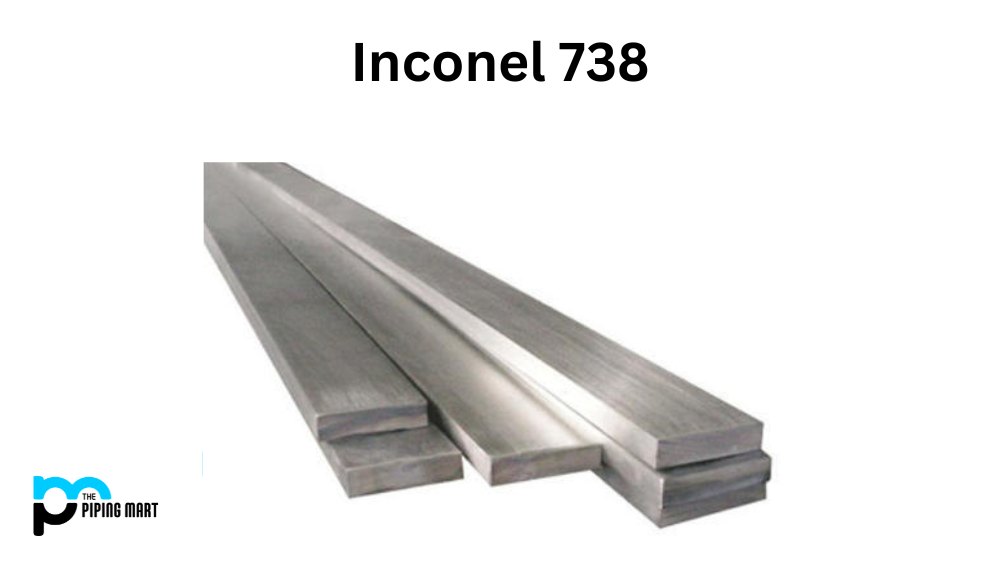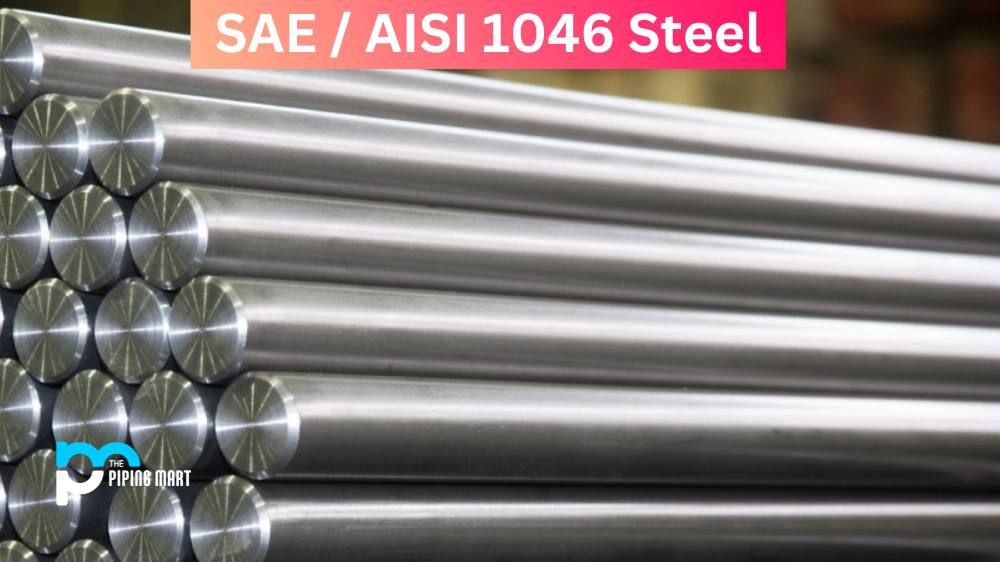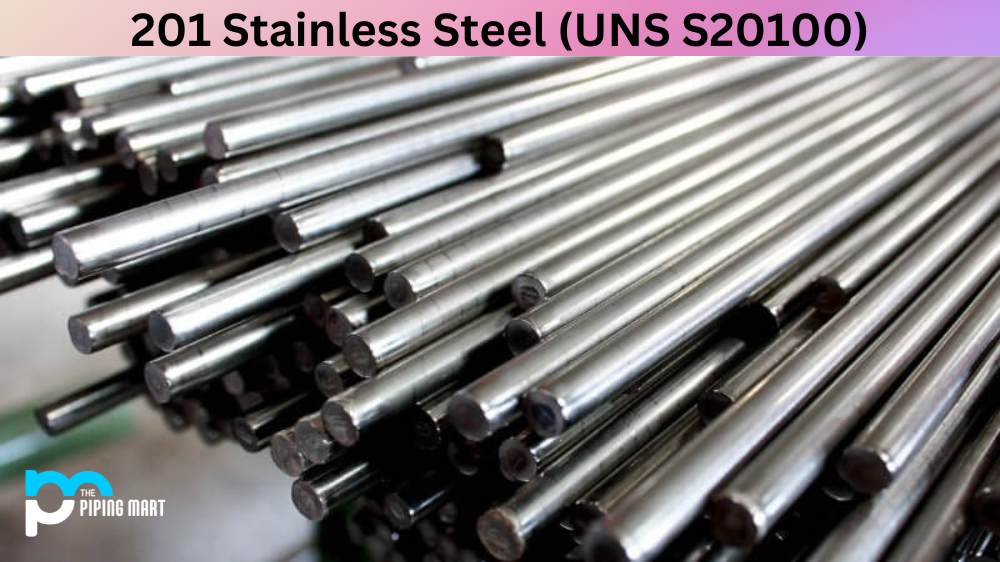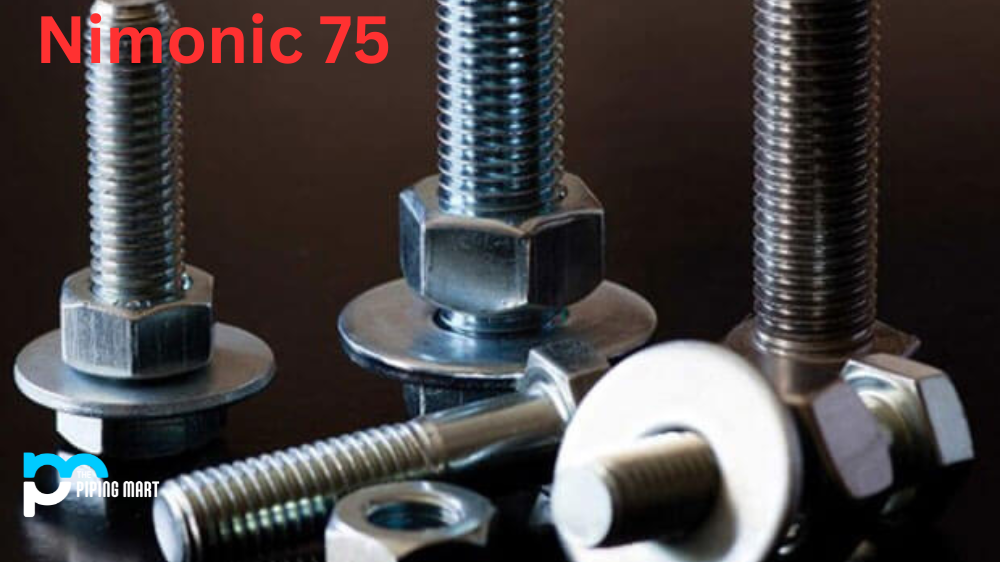Inconel 738 is a nickel-based superalloy used in various industries, from aerospace to medical. This versatile alloy has excellent mechanical and physical properties, making it an ideal choice for applications that require exceptional performance under extreme temperatures. Let’s take a closer look at this amazing alloy and its many uses.
Inconel 738 Composition
AISI inco 738 is composed primarily of nickel (58%), chromium (20-23%), cobalt (9-11%), iron (7-9%), molybdenum (2-3%), and trace amounts of aluminium, titanium, tungsten, manganese, copper, sulfur, carbon and silicon. It also contains 0.4% yttrium for increased corrosion resistance.
| Chemical Element | % Present |
| Carbon (C) | 0.15-0.20 |
| Manganese (Mn) | 0.20 max |
| Silicon (Si) | 0.30 max |
| Nickel (Ni) | Balance |
| Sulfur (S) | 0.015 max |
| Iron (Fe) | 0.50 max |
| Chromium (Cr) | 15.70-16.30 |
| Aluminium (Al) | 3.20-3.70 |
| Molybdenum (Mo) | 1.50-2.00 |
| Boron (B) | 0.005-0.015 |
| Titanium (Ti) | 3.20-3.70 |
| Cobalt (Co) | 8.00-9.00 |
| Columbium (Cb) | 0.60-1.10 |
| Tantalum (Ta) | 1.50-2.00 |
| Tungsten (W) | 2.40-2.80 |
| Zirconium (Zr) | 0.05-0.15 |
Inconel 738 Chemical Properties
The chemical properties of Inconel 738 make it highly resistant to corrosion from acids like chlorine dioxide and sulfuric acid. It performs exceptionally well in corrosive environments such as those found in offshore oil wells or power plants with chlorinated water systems. The alloy’s high chromium content also gives it outstanding oxidation resistance even at elevated temperatures.
Inconel 738 Mechanical Properties
AISI Inconel 738 has excellent mechanical properties at both room temperature and elevated temperatures. It has a tensile strength of up to 130 ksi (895 MPa) and a yield strength of up to 100 ksi (690 MPa). These properties make inco 738 an ideal choice for applications requiring excellent strength at elevated temperatures up to 2200°F (1204°C).
Inconel 738 Physical Properties
The alloy’s low thermal expansion rate makes it resistant to thermal shock when exposed to sudden changes in temperature.
| Physical Properties | Metric | English | Comments |
|---|---|---|---|
| Density | 7.81 g/cc | 0.282 lb/in³ | |
Inconel 738 Uses
Inconel 738 is used in various industries, including aerospace, automotive, chemical processing and medical device manufacturing. The alloy can be found in components such as turbine blades in aircraft engines; valve parts; fasteners; spark plugs; exhaust manifolds; fuel injectors; springs; bearings; rotors; pump shafts; impellers; gas turbines; nuclear fuel rods and pins for medical implants. Its versatility makes it an ideal choice for machining into complex shapes due to its good machinability, even when working with hard materials like stainless steel or titanium alloys.
Corrosion Resistance
Given its impressive mechanical and physical properties as well as its superior corrosion resistance,
Heat Treatment
Heat treatment is required for inco 738 before any machining operations due to its high hardness levels after the material’s completion of cold working processes like bending or forming. A heat treatment process known as “double ageing” can be used, which involves heating the material up to 1400°F followed by cooling it back down again before undergoing the machining process itself – this helps reduce stress on the metal while enabling better accuracy during machining operations compared with using untreated metal materials which are more prone to cracking or chipping during cutting operations due to their increased hardness levels after cold working processes have been applied on them.
Machining
Machining Inconel 738 can require special tools and techniques due to its strength and temperature resistance. Experienced machinists are advised to use premium grades of high-speed steel, carbide cobalt, or ceramic-reinforced tool bits when working with this material, as it may require slow cutting speeds and high volumes of coolant for proper machining. Improper attention in the use of Inconel 738 machining can lead to costly repairs and danger for persons working around the parts due to their exposure to heat and dangerous materials.
Welding
Finally, welding can also be performed on inco 738 using either tungsten inert gas welding or metal inert gas welding techniques. These methods involve injecting either tungsten or metal inert gas into the weld area during welding operations so that the metal does not become oxidized during the process, which would otherwise lead to issues such as cracking or pitting down the line when exposed to high temperatures again later on.
Conclusion
With its impressive chemical composition coupled with outstanding mechanical and physical properties as well as excellent corrosion resistance capabilities – especially against strong acids – Inconel 788 is one of the most versatile alloys available today for use across multiple industries where performance under extreme environmental conditions is key.. Whether you need components manufactured out of this material for aircraft engines or surgical pins for medical implants – this superalloy can do it all! So if you’re looking for an alloy that will provide reliable performance even under extreme conditions, then look no further than Inconel 788 – your solution awaits!

Abhishek is a seasoned blogger and industry expert, sharing his insights and knowledge on various topics. With his research, Abhishek offers valuable insights and tips for professionals and enthusiasts. Follow him for expert advice on the latest trends and developments in the metal industry.




